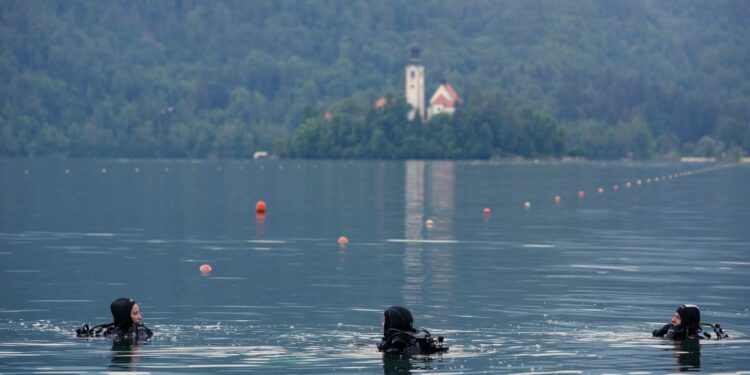One of Slovenia’s most popular tourist destinations, Bled is a lush, green town with a turquoise lake overlooked by a medieval castle dating back to the 11th century. But this is no longer the only attraction of this town located less than an hour’s drive from the capital, Ljubljana. Since April 2022, it has also been the first locality in Europe to benefit from the “Zero Waste Cities” certification, paving the way for other municipalities in Slovenia and making this country a pioneer in the field.
“It’s a paradise to be preserved, the pearl of the Slovenian Alps,” said Janez Resman, director of Infrastruktura, a public infrastructure management and waste collection company. The group is easily identifiable by the imposing waste collection container it provides for citizens. “But we have a serious problem: tourists. They keep us going, but out of 6 tonnes of annual waste, they produce as much as the locals!”
Read more Subscribers only French leader in household packaging Sphere inaugurates a ‘zero waste’ plant in Spain
In 2022, there were 1.1 million people admiring the glacial lake, where a 15th-century church stands at its center, for a town of 8,000 inhabitants and as many beds: 50% more than seven years ago. Resman’s office is a mess of recycling, with vacuum cleaners and transistors piled up for repair – his hobby. Here, he recounted the main stages of his proactive waste reduction policy, implemented with his business partner, Jozica Peljhan.
A sorting rate of 85%
“Infrastruktura has been around since 2002. In 2011, we introduced “PAYT” [“pay as you throw away”]. All our containers are fitted with a chip that quantifies garbage, and everyone is charged according to their volume of waste, on a biweekly collection schedule.” In 2014, the agency joined the Zero Waste Europe voluntary network, which distributes “Zero Waste Cities” certifications (with an independent audit) and currently supports 462 municipalities across Europe in this strategy. Bled is showing convincing results. Between 2008 and 2021, the amount of annual residual waste fell from 3 tonnes to 1.3 tonnes, with its sorting rate reaching 85%.
“Check it out for yourself: Bled is a clean town. If you find any garbage, report it to me,” said Resman. In fact, for 12 hours per day, the six trucks with their sides adorned with educational injunctions – “Use rechargeable batteries” or “We don’t buy fruit in a plastic bag” – relentlessly criss-cross the spa town with its dozens of 19th-century mansions. Installed by Infrastruktura around the lake, the hundred or so garbage cans, divided between mixed waste and plastic, are doing their job. Despite the busloads of tourists who flock here every day during the summer season, not a single piece of garbage litters the ground. The result: a 57% reduction in mixed waste between 2015 and 2021.
You have 56.36% of this article left to read. The rest is for subscribers only.
Source link : https://www.lemonde.fr/en/environment/article/2024/01/01/slovenia-s-zero-waste-pioneers_6391773_114.html
Author :
Publish date : 2024-01-01 08:00:00
Copyright for syndicated content belongs to the linked Source.


